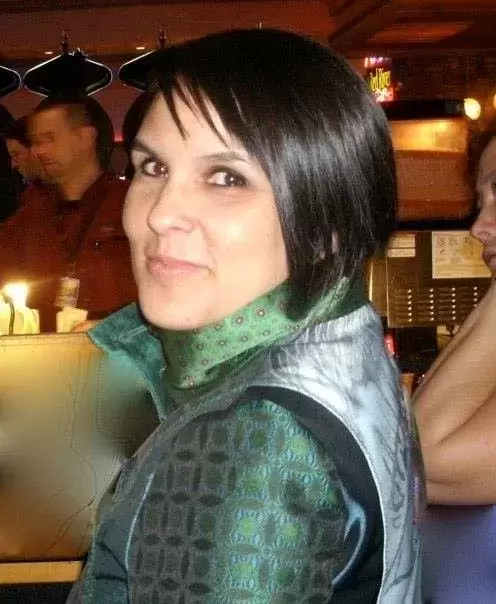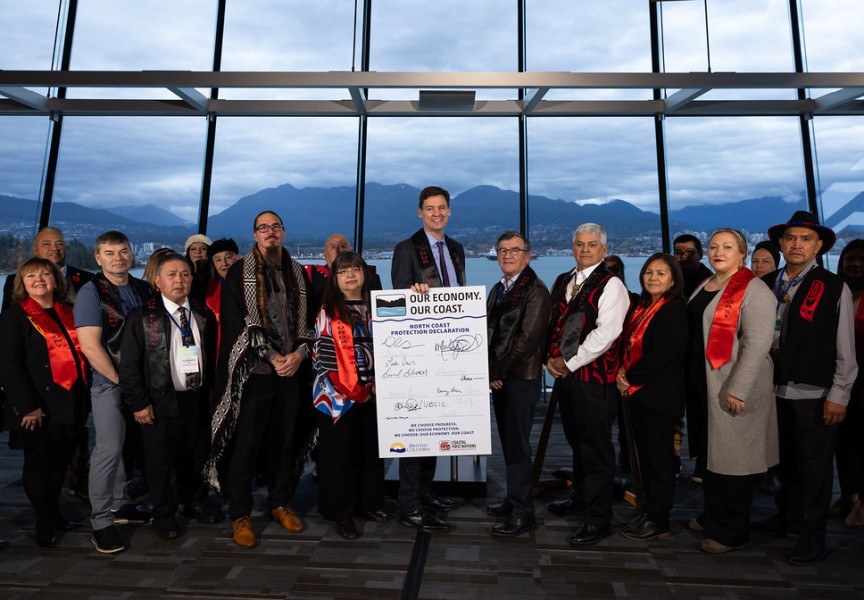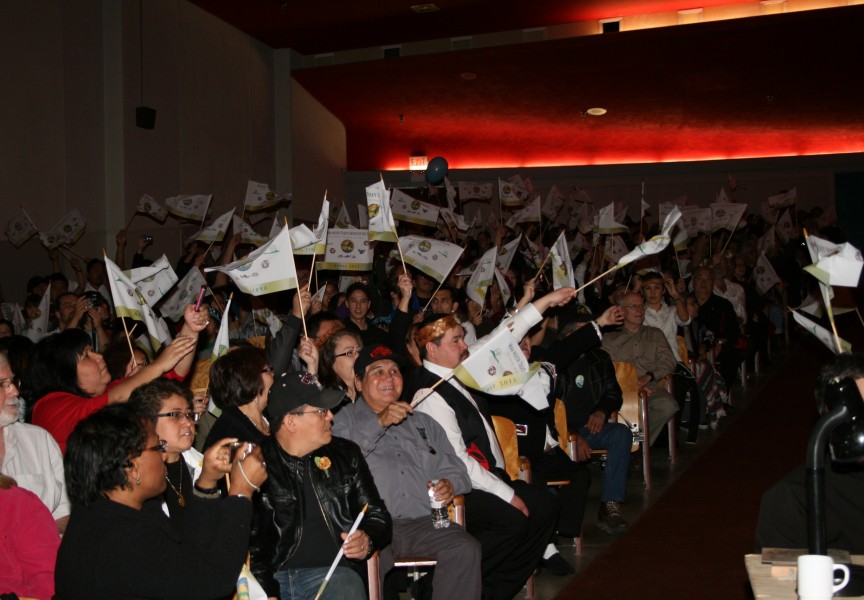A member of Hesquiaht First Nation has earned a B.C. Aboriginal Business Award for her consulting firm, which specializes in social and economic development for First Nations communities.
Carol Anne Hilton is the CEO of Transformation International, which is based in Alert Bay. On Dec. 5, she and her partner, Ainjil Hunt, a member of Namgis First Nation, will receive their award during a gala event at the Westin Bayshore in Vancouver.
The operating philosophy of Transformation International is “Uniting Business and Culture.” Hilton said it is critical for First Nations to maintain a connection to their culture as they strive to generate wealth and prosperity for their members.
“We’ve focused around a central concept that in community development, social health needs to parallel economic wealth,” Hilton said.
That means when a community grows its economy, the members must have a strategy in place to match their economic conditions.
Transformation International looks at the individuals, families, administration and governance to determine the best approach to community development.
One recent client illustrated how this plays out at the ground level, Hilton said. The community realized it needed to make a systemic shift in its culture of social assistance, to make it a complete process. Instead of treating it purely as short-term financial assistance, members would use the system to access available training and education, as well as acquiring related family supports, in a step-by-step progression towards becoming self-supporting.
On the North Coast, Nisga’a First Nation contracted a program to encourage and develop entrepreneurship among members as part of an integrated economic development strategy.
For nearby Sliammon First Nation, which has signed a treaty agreement in principle, the goal has been to develop comprehensive new policies for land management, administration and services outside the federal Indian Act.
On Nov. 8 and 9, Hilton and Hunt delivered a two-day Indigenous Wealth Dynamics workshop for the Whitehorse Aboriginal Women’s Council.
“It’s a program to look at how to shift our relationship with money,” Hilton said.
While financial literacy is critical, she explained, for many aboriginal people who have grown up in poverty, it is equally important to change the behaviours they have learned surrounding wealth and material gain, in order to learn to manage money in an appropriate way.
“We’ve built that program around the concept that you can be good with money, and you can also be good at being Indigenous.”
While Hilton was born in Mission, on the Lower Mainland, her roots are with the Ambrose family in Hesquiaht and the August family in Ahousaht.
After graduating from high school, she undertook an undergraduate degree in First Nations Studies at Malaspina College (now Vancouver Island University). Hilton followed that with an Intercultural Education and Training certificate at the University of Victoria.
She topped that off with a Masters of Business Administration through the International Program of the University of Hertfordshire in the UK.
“I liked the international component of the program. It was a partnership program through VIU. It was an international program: there was one in Greece, there was one in Canada, in England and Australia. It brought all four perspectives together.”
Presently, Hunt is working on her own MBA, in the new specialty of Aboriginal Executive, through Simon Fraser University.
“It’s the first of its kind in North America,” Hilton said. “She is in the first cohort for the Aboriginal Executive MBA. I believe there are only two of its kind in the world, for an Indigenous focus: one in New Zealand and one in Canada.”
Hilton said in today’s conflicted economy, with growing multinational control of resources and the prospect of increased foreign control over whole sectors of the Canadian economy, First Nations have an increasingly important role to play.
Non-aboriginal Canadians have come to recognize that First Nations hold significant (and constitutionally protected) leverage in the areas of resource allocation and environmental protections.
“The cultural approach is what is driving First Nations development, where you wouldn’t see that in the mainstream economy,” she said. “I think what is emerging is a cross-dialogue where First Nations are asking, ‘How does corporate culture work?,’ and corporate culture is asking, ‘How does First Nations culture and administration work?’”
Hilton believes this provides an opportunity for First Nations to build partnerships not just to prevent unwanted development, but also to participate and benefit from appropriate development. She is currently writing a book on an entirely new concept known as “indigenomics.”
“There’s a growing need for consultation with First Nations to be able to access a resource-based economy. The shifting nature of that relationship is what ‘indigenomics’ is. It is essentially that power shift.”
Through her company, Hilton is carrying that message, one nation at a time. She and Hunt work with anywhere from 25 to 50 associates and so far, have resisted the idea of setting up branch offices across the province. For now, she will continue to assess the needs of each client community, then put together a team focused squarely on their specific objectives.
The Aboriginal Achievement Award is a welcome recognition that the Transformation International approach is working successfully.
“As a 100 per cent First-Nations-woman-owned business, we are really excited, because we feel we have been able to take the company outside the traditional consultant-box of management consulting services and create a business model that really reflects First Nations community development.”







